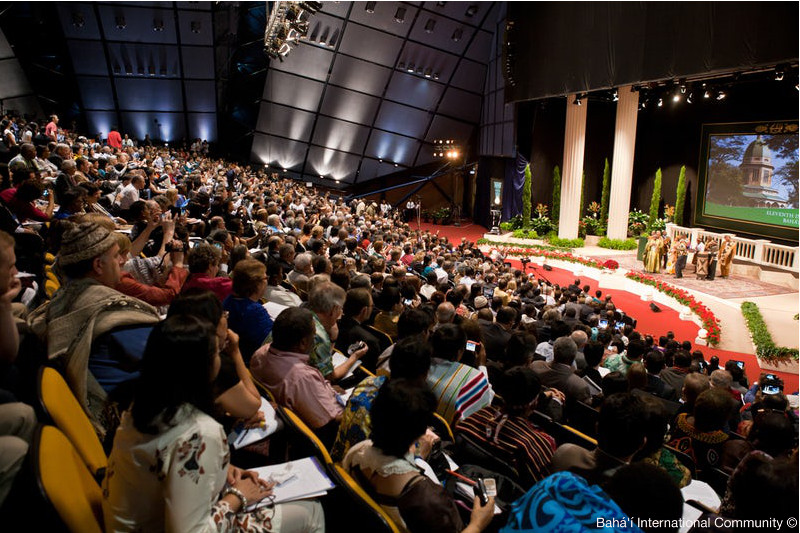
Philippine Bahá’í Community

Philippine Bahá’í Community
Bahá’í Election
“The Bahá’í electoral system, operating by secret ballot, with no nominations or electioneering, encourages universal participation: every adult Bahá’í is eligible for election to local and national administrative bodies responsible for decision in the conduct of Bahá’í affairs.”
Every year during the first day of Ridvan*, localities around the world with at least 9 adult Bahá’ís (21 years old and above) come together to elect their Local Spiritual Assembly. The Local Spiritual Assembly is a Bahá’í institution that administers that affairs of the Faith at the local level. It has nine adult Bahá’ís as members of the Assembly.
Also each year during the period of Ridvan*, all Bahá’í national communities elect their National Spiritual Assembly, consists of nine adult Bahá’ís. The electors or the delegates are themselves elected during what is called the Electoral Unit Convention where adult Bahá’ís in a unit or sector, through secret ballot, elect a delegate from their area who will represent their community and participate in the election of the National Spiritual Assembly.
The members of National Assemblies from more than 160 countries all over the world, come together every five years to an international Bahá’í Convention, to elect nine members of the highest governing Body of the Bahá’í Faith: the Universal House of Justice.
There are also Regional Bahá’í Councils consists of 5, 7 or 9 members, that administer the affairs of the community at the regional level. In some countries, these Regional Councils are elected every five years; while in several others, the Councils are appointed. In the Philippines, Local Assemblies make recommendations on the membership of Regional Bahá’í Councils, but the National Spiritual Assembly of the Philippines makes the final appointment.
Bahá’í elections—from local, regional, national, and international levels—are done in secret ballot and campaign is not in any way allowed.

Shoghi Effendi writes about the responsibility of the elector:
“…with a heightened awareness of the functions to be performed by the elected body, the believer can properly assess those for whom a vote should be cast. From among the pool of those whom the elector believes to be qualified to serve, selection should be made with due consideration given to such factors as age distribution, diversity, and gender. The elector should make his choice after careful thought over an extended period before the actual election.”
“The electors…must prayerfully and devotedly and after meditation and reflection elect faithful, sincere, experienced, capable and competent souls who are worthy of membership.”
“On the election day, the friends must wholeheartedly participate in the elections, in unity and amity, turning their hearts to God, detached from all things but Him, seeking His guidance and supplicating His aid and bounty.”